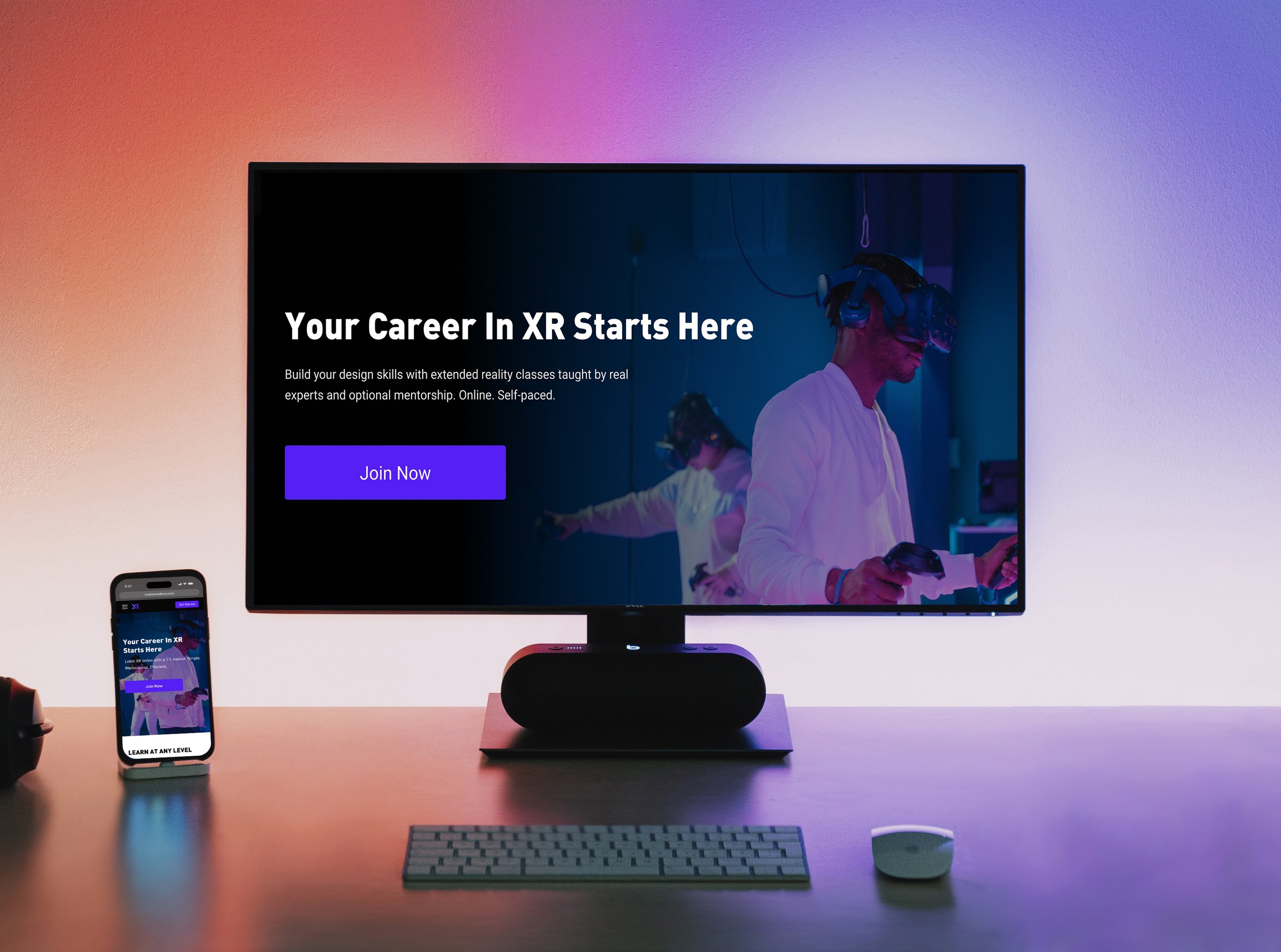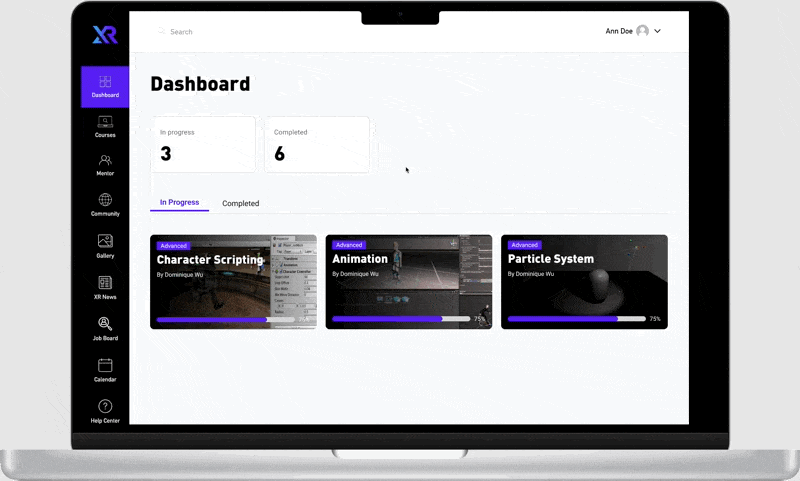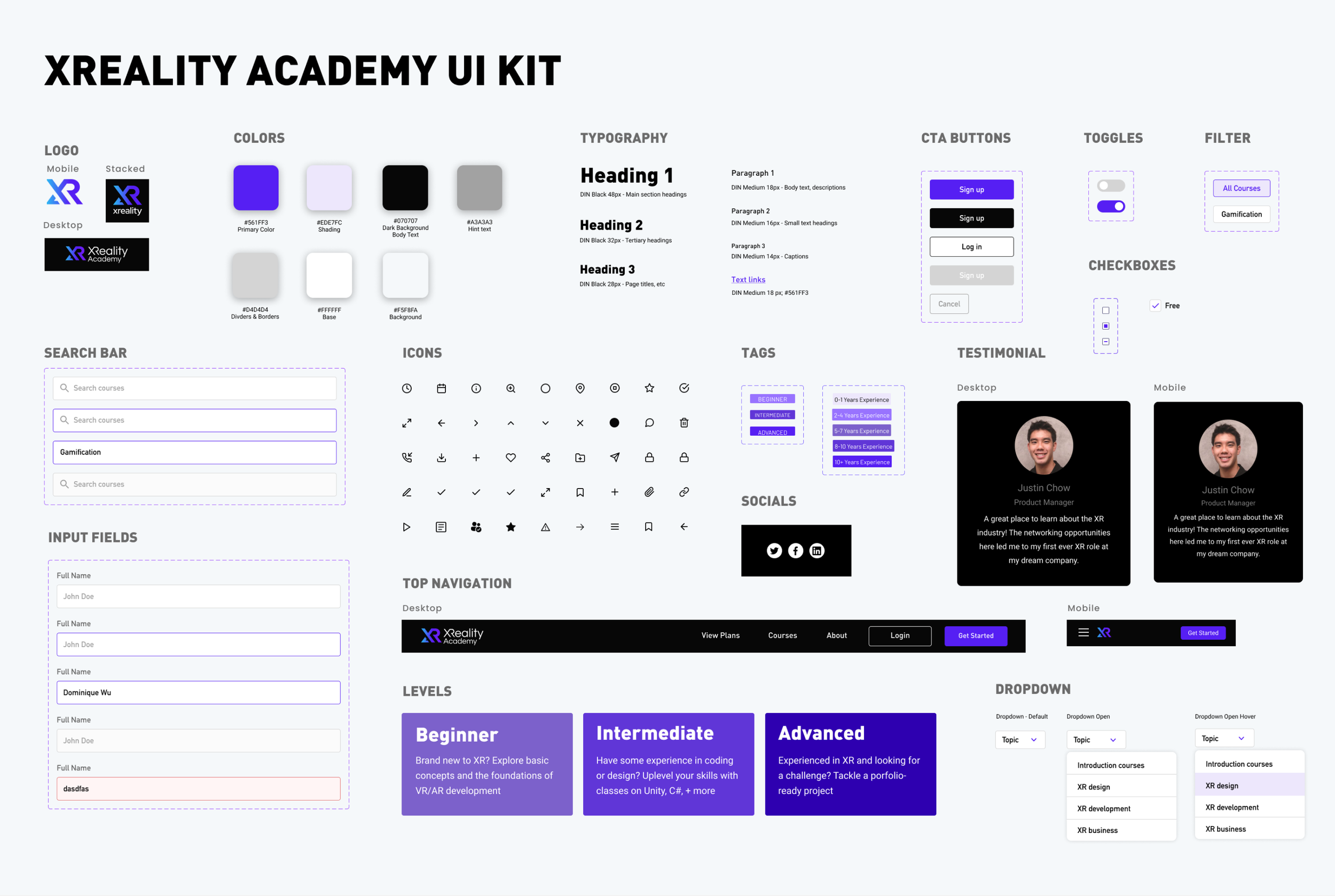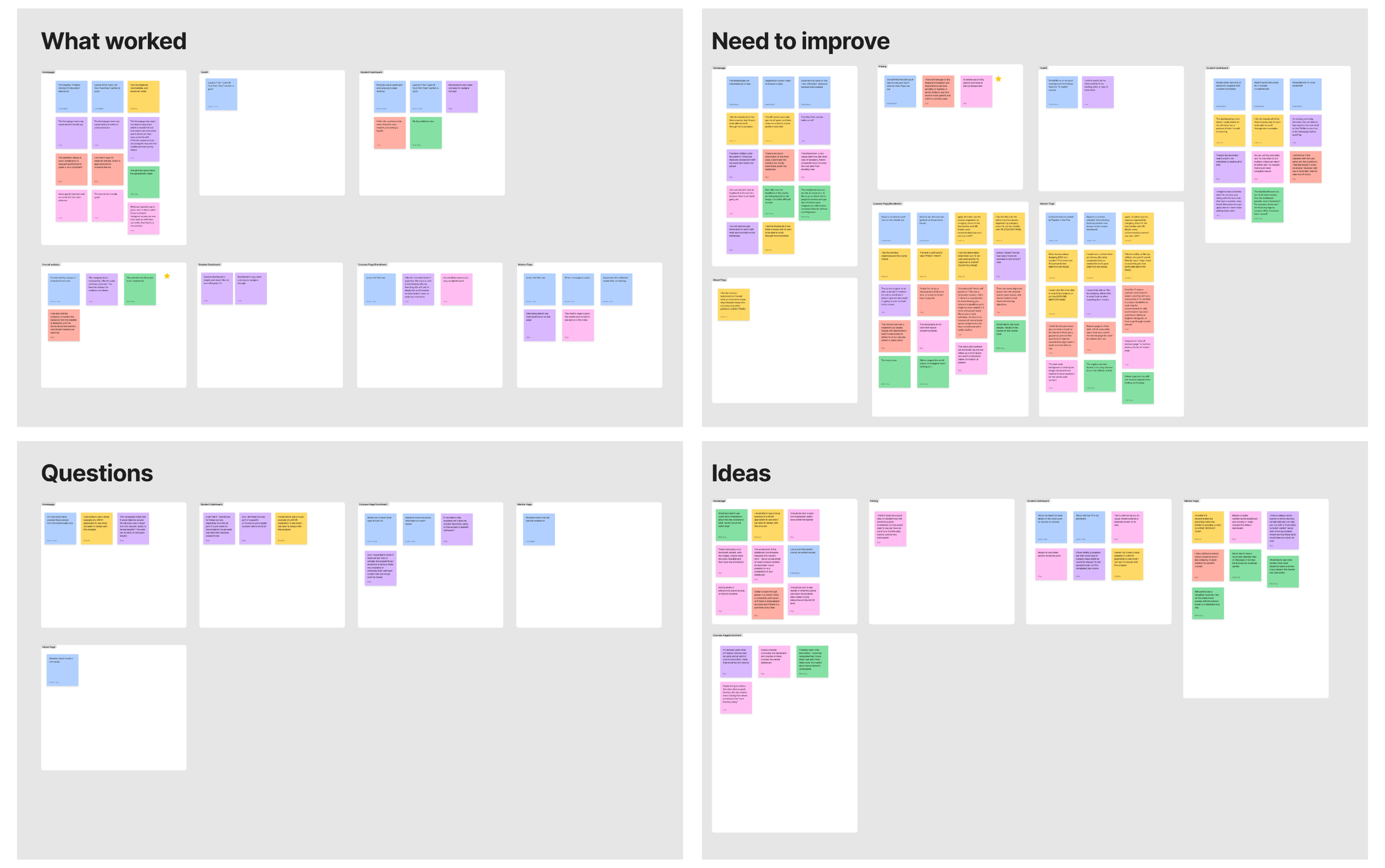
About the Project
As UX designers increasingly pursue opportunities beyond traditional web and mobile interfaces, the explosive growth of the Extended Reality (XR) market presents a compelling frontier. With demand for specialized XR skills outpacing accessible training resources, many designers face a gap in structured, industry-aligned education. To address this, EdTech innovator XReality Academy partnered with our team to create an immersive online learning platform. The project focuses on equipping designers with XR expertise through hands-on, project-based challenges that mirror real-world scenarios. By blending problem-solving frameworks with design thinking methodologies, the platform empowers professionals to transition into XR careers while fostering creativity, technical fluency, and strategic adaptability in a rapidly evolving field.
Challenge
How might we create an accessible, adaptive learning experience that empowers UX designers to confidently transition into XR design through hands-on, real-world challenges?
Solution
Design an XR learning platform for XReality Academy that empowers UX designers to transition into extended reality through a flexible, project-driven curriculum, personalized mentorship, and a collaborative community—bridging the gap between traditional design expertise and industry-ready XR skills.
Research · Design · Test
User Research
We started by conducted 1-1 user interviews with 4 prospective students to understand their motivations uncover any pain points they have experienced with online learning.
Competitive Analysis
Next, we conducted competitive research against four direct competitors in the XR education market. XReality Academy stands out against competitors as the only platform that is self-paced, mentor-lead, and on a monthly subscription model, allowing students flexibility.
Personas
When creating our personas, we wanted to dive into our research and authentically represent our client’s prospective students, their needs, and pain points.
User Journey
Information Architecture
Before diving into design, we constructed the website sitemap and user flows for course enrollment and mentor scheduling.
Research · Design · Test
Early Wireframe Explorations
Visual Design
To represent creativity and self-knowledge, we decided on the color purple. We created a design system to facilitate consistent design standards for the website and learning management system. Our typography, icons, and buttons were created to emphasize ease of usability and efficiency.
Logo Design
High-Fidelity Wireframes
Research · Design · Test
Usability Test Results
Final Design
Conclusion
Our design process was curated to maximize efficiency in usability for XReality Academy’s potential students and make the learning process easier. The deliverables presented showcases foundational steps we took to create a platform for our client so they could address the needs of their prospective students.
















